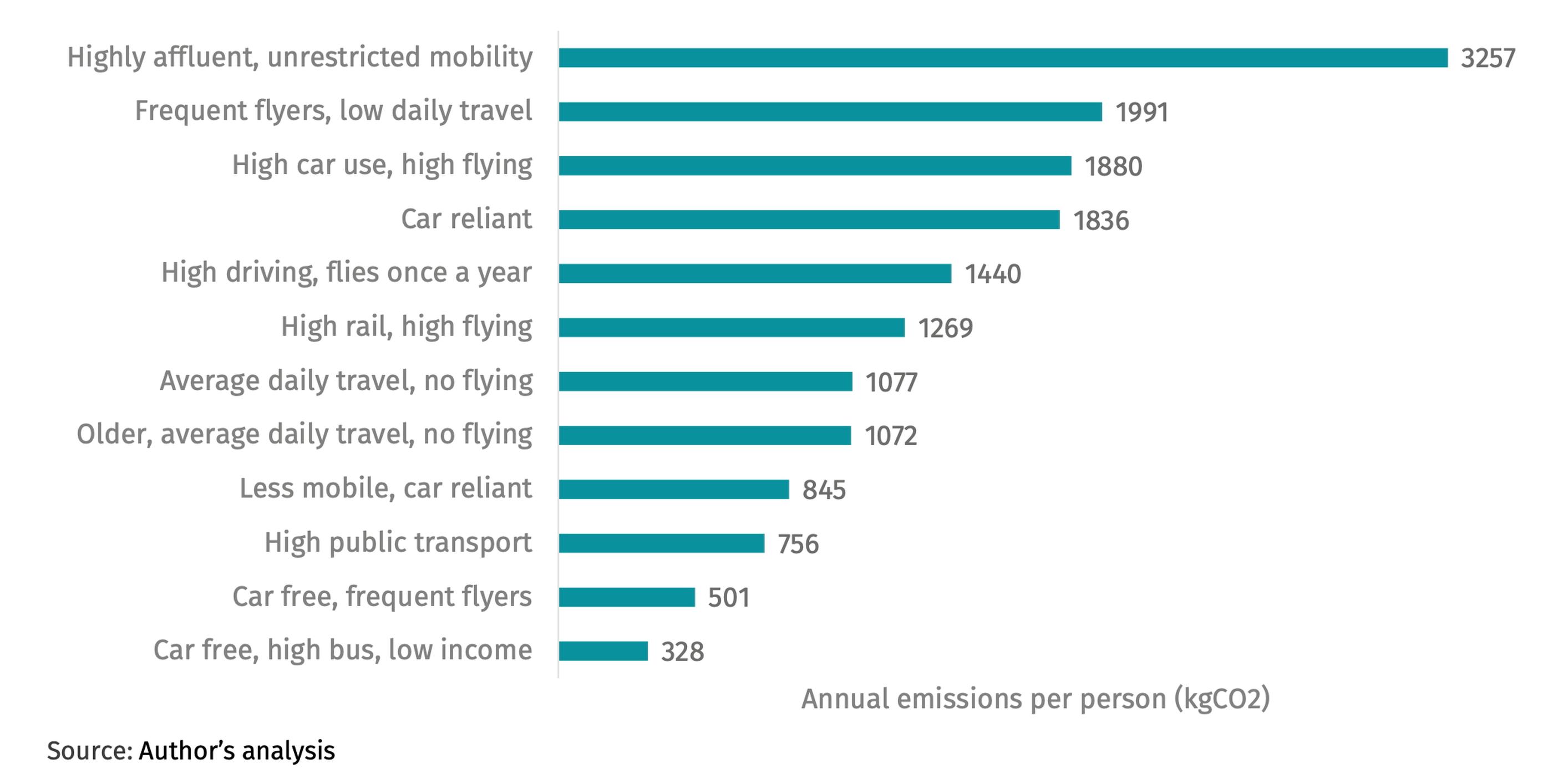

The richest 4% of UK households are on course to emit 13 times more carbon than the poorest 14% from their domestic travel by 2035, estimates a new report from the Institute for Public Policy Research (IPPR). This would be up from the ten-fold gap today, says the think tank.
It adds that, once international travel is included, the richest are expected to emit 22 times more than the poorest – up from 20 times today.
Growing emissions inequality is driven by the largely unrestricted mobility of affluent groups, who travel six times further a year on average than those on the lowest incomes, according to the IPPR.
The poorest in society are on track to cut their emissions the quickest, and the wealthiest will remain the highest emitters in absolute terms, despite their ability to afford new electric vehicles (EVs), the research found.
Additionally, while the wealthiest will benefit from lower transport costs due to cheaper EV running costs, the lowest income groups face rising costs as public transport fares continue to increase.
The Government’s current approach places minimal demands on high emitters and fails to address the widening gap in domestic transport emissions, the IPPR states.
It calculates that under existing policy, traffic is set to rise by 12% by 2035. In contrast, IPPR’s proposed ‘fairer pathway’ would reduce traffic by 25%, cut emissions faster, and improve access to transport for low-income households.
The IPPR calls for reducing the need to travel by improving access to jobs, services, and amenities locally, especially for those currently locked into car dependency.
It places greater responsibility on those who contribute most to emissions and have the greatest resources to change their travel habits, ensuring that climate action benefits everyone.
Key recommendations include:
Stephen Frost, IPPR's Head of Transport Policy, said: “The richest households are driving the bulk of emissions, and they have the greatest capacity to change. Fairness isn’t a barrier to climate action – it’s the key to unlocking it. A fairer approach doesn’t just cut carbon faster, it builds a healthier, more inclusive transport system for everyone.”
Fairer is Faster - The route to greener and healthier domestic transport

TransportXtra is part of Landor LINKS
© 2025 TransportXtra | Landor LINKS Ltd | All Rights Reserved
Subscriptions, Magazines & Online Access Enquires
[Frequently Asked Questions]
Email: subs.ltt@landor.co.uk | Tel: +44 (0) 20 7091 7959
Shop & Accounts Enquires
Email: accounts@landor.co.uk | Tel: +44 (0) 20 7091 7855
Advertising Sales & Recruitment Enquires
Email: daniel@landor.co.uk | Tel: +44 (0) 20 7091 7861
Events & Conference Enquires
Email: conferences@landor.co.uk | Tel: +44 (0) 20 7091 7865
Press Releases & Editorial Enquires
Email: info@transportxtra.com | Tel: +44 (0) 20 7091 7875
Privacy Policy | Terms and Conditions | Advertise
Web design london by Brainiac Media 2020